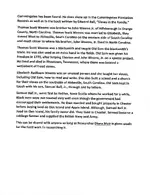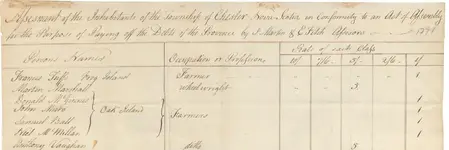ECS
Banned
- Joined
- Mar 26, 2012
- Messages
- 11,638
- Reaction score
- 17,695
- Golden Thread
- 0
- Location
- Ocala,Florida
- Primary Interest:
- Other
Once again you your comprehension skills prove wanting.... Nowhere in there does it mention that Vaughn was his executor of his will..
Seems like it would be some good info to have in there with the info on the will...
You found one source of info on Ball that doesn't mention cabbage...
From Samuel Ball's Will:
"Executors Rev Joseph Dimock, Anthony Vaughn and wife Catherine..."
Nor only is cabbage not mentioned in his will , neither is any amount of money listed among his assets, but much to your chagrin, cattle are mentioned, as well as land and various houses and other buildings on his many properties.
You may attempt to dismiss the accuracy of the the narrative account, but Samuel Ball Will stands as proof of assets, whether you accept it or not.









